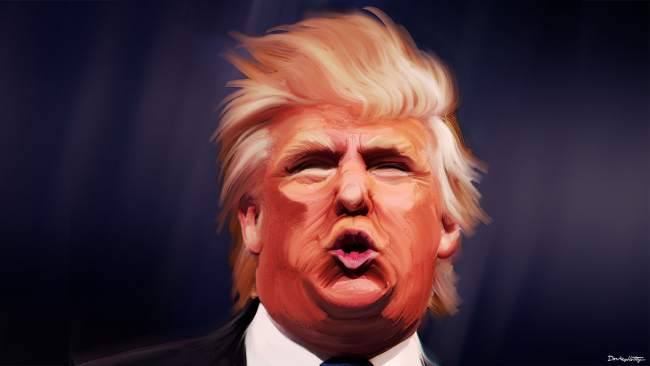The furore over the latest musings of the professional loudmouth Donald Trump has provoked an ironic response from those residing just across the pond from the US.
Those who venture onto the British government’s official petition website will find that at least 340,000 have signed a petition to block the American presidential candidate from entering Britain, at least as of Wednesday night.
Such a volume of signatures has been amassed after the businessman argued that no Muslims should be allowed into the United States until the authorities “can figure out what is going on.”
Trump cited research suggesting “there is great hatred towards Americans by large segments of the Muslim population”, pointing to Pew Research (though no specific study) as well as the Center for Security Policy, which hardly appears to be the most even-handed of research outfits.
Nevertheless, the various calls to ban people from various countries raises the question of whether liberal democracies should tolerate intolerance, particularly in speech.
Judging from his statement the Donald worries that those with jihadist sympathies will enter the country, which is to say that he worries that those who would physically attack his countrymen could be allowed onto US soil.
To quote specific Pew Research on the matter from 2011, most Muslim-majority countries overwhelmingly rejected suicide bombings in defence of Islam (though Egypt, Bangladesh, Afghanistan and Palestine were notable exceptions).
Though it only takes a small minority to cause widespread destruction, Americans are highly unlikely to die as a result of Muslim terrorism, even without a blanket ban on Muslims. To say the cost to human freedom outweighs any potential benefits of such a ban is to state the obvious.
But while the 340,000 who claim to want him banned from Britain might well be mostly playing a prank, there’s no doubt many who support silencing of unpleasant opinions by jailing the perps or stopping them setting foot in the country.
Suzanne Kelly, the woman who set up the petition, argued that Trump’s comments were “hate speech”, telling the Graun:
“There are few things a person in my position can do against a person like that but make use of this country’s wonderful laws and procedures. This petition also gives all those people who agree with me a platform to say we also disagree with hate speech.”
That calls for such judicial violence should come through the Internet is itself a neat irony, demonstrating the futility of expelling opinions from one country when websites are broadcast worldwide, despite the best attempts of government to stifle the truly free speech available online.
If anybody in Britain inspired to anti-Muslim prejudice by Trump’s comments excluding the loudmouth from this country will not change that, any more than banning Tyler the Creator prevents Britons from listening to the rapper’s music on Spotify, or stopping extremist Muslim clerics speak at universities prevents people reading about Islamic State online.
The case for criminalising “hate speech” has always been dubious. But in the age of the Internet it’s also redundant.
Image Credit – Donald Trump, July 2015 by DonkeyHotey
